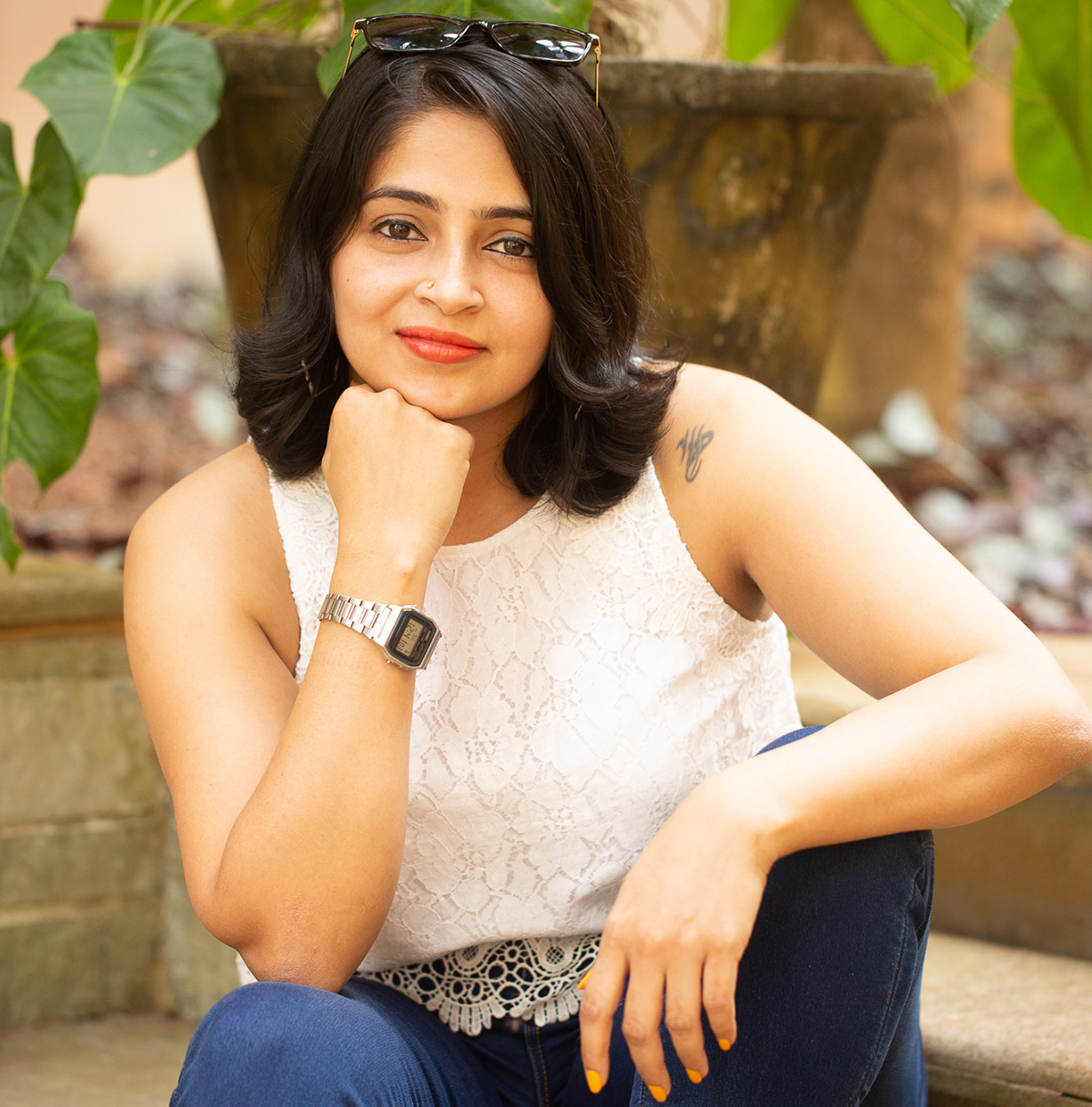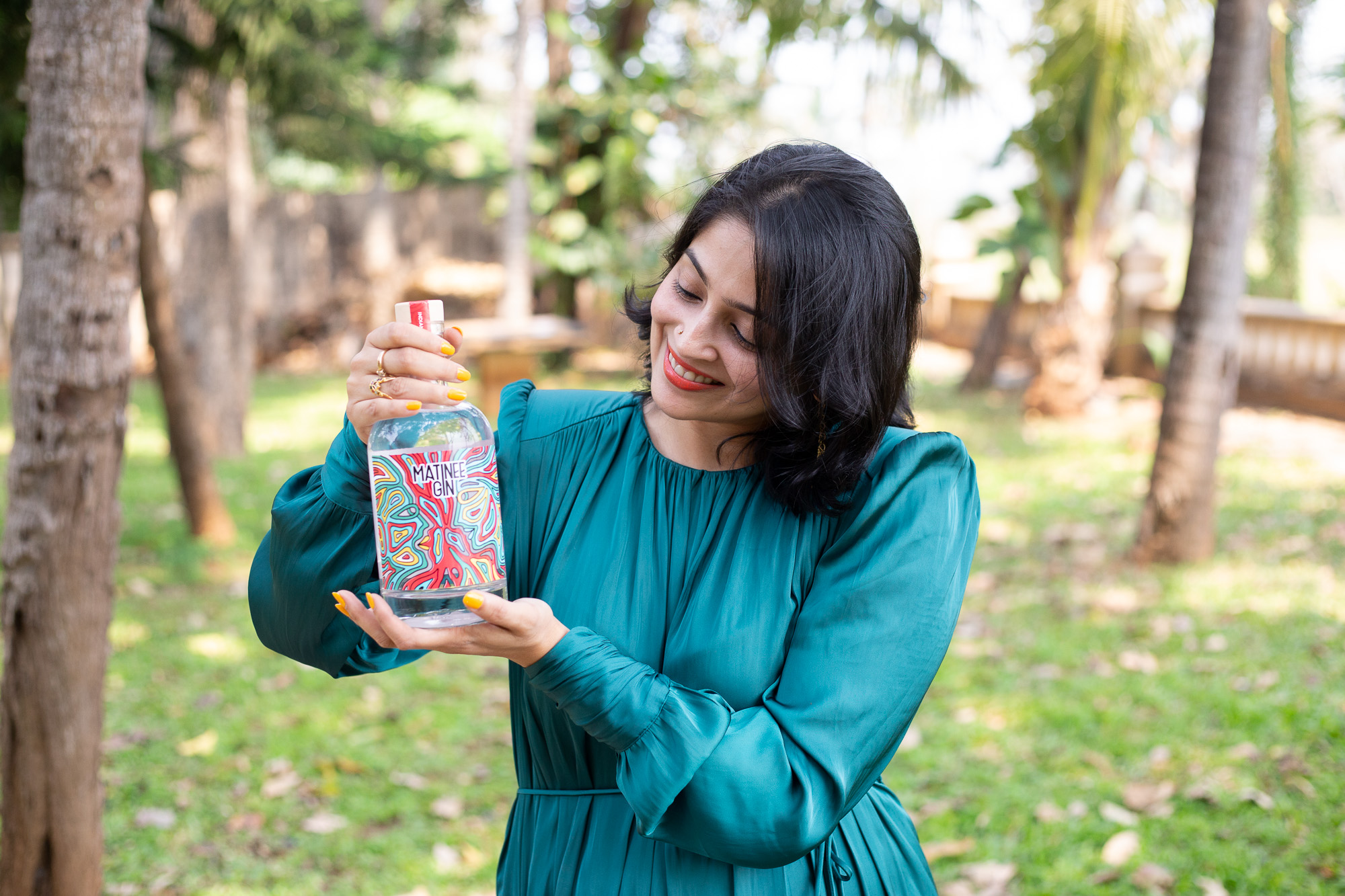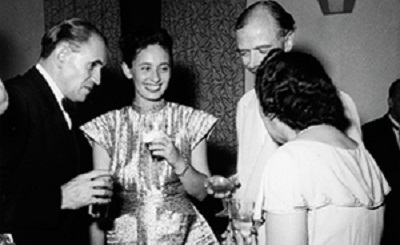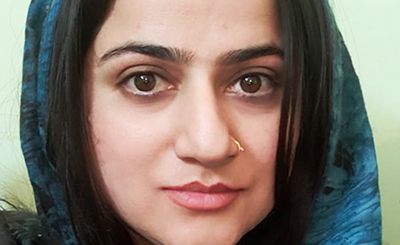
Lavanya Jayashankar: Co-founder, Matinee; Indian Craft Gin
‘Founding Matinee, India’s first women-founded gin brand, along with my friend Anjali Shahi, helped me free myself of traditional definitions of success. There is no dearth of people looking at us through their own eyes (and biases), telling us what we can and cannot do. The very least we can do for ourselves is to not listen.’
I co-founded Speakeasy Spirits Pvt. Ltd. in 2018 with a close friend from my undergrad years, Anjali Shahi. Matinee is our brand of Indian Craft Gin, currently available in Goa and soon to be on shelves in Delhi.
The category of gin is seeing a wave of interest in India, with several brands entering this space over the past few years. And yet, Matinee happens to be India’s first (and so far, only) women-founded gin brand. I keep meeting people who are genuinely amazed to hear the story of two women in the liquor industry.
On a slight tangent, we are often referred to as the two ‘girls’ behind Matinee, and I often find myself correcting this language. Anjali and I are close to 40 and have established ourselves both personally and professionally, and don’t need to hear language that essentially positions us as inexperienced younglings that are out of their depth. And after all, since language shapes thinking as much as the other way around, I do take the time to point out that we are two established ‘women’ with enough experience to transfer skills to a new industry.
But coming back to the point — people are often amazed to see us in this business. They wonder, what does it feel like to work in a male-dominated industry? I believe a better question is: what does it feel like to live in a male-dominated world? Because, let us face it, almost every industry is male-dominated. My career has seen a few different avatars since I started working more than 15 years ago, and one thing remains unchanged — I am often the only woman (or one of few, at best) in any professional room, with this only getting more cemented the more senior the room gets.
The reality is that living in this world has not affected my choice of industry, but it has impacted the way I see myself. And the truth is, I never saw myself as an entrepreneur. My upbringing had a role to play in that as well. Raised in small-town India in a family with deep-rooted connections to government services, any risk appetite I might have had was firmly relegated to the background. I was taught that security and comfort were important to have, and that these commodities were less likely to be found here, at home. So, as I grew up, I sought out the familiar path of the people described as ‘achievers’ both inside and outside my family — an education, career, and life abroad.

I left for Singapore in 2002, when I was 17 years old, and year after year sped by in a life that was seemingly perfectly on track. As my years abroad went from single to double digits, and as I moved from Singapore to London, I was witnessing a transformation happening back home — India was becoming Startup India. I was fascinated while reading these stories from afar, but I never once saw myself as having anything to do with this movement that was almost exclusively the domain of men, and that too, men in technology.
It was also impossible to imagine leaving the cushy comforts of a job and exploring this world that seemed equal parts exciting and daunting. Instead, I started to plan the next step of the traditional track — an MBA from an internationally ranked institution.
But before I could start down that path, things changed fairly rapidly, all stemming from one single risk I decided to take. An opportunity arose that I decided to say yes to, and I found myself in Mumbai, starting up the India office of the company I was working for in London. Once this first risk was taken, the next few came easier — I left the company to start a boutique design thinking agency in 2017, utilising much of the same skill set that I had developed through the course of my career. And then I started working on the ‘gin project’, as Anjali and I initially called it, on the side, before transitioning to it full time in 2021. We’ve now raised a (yet-to-be-officially-announced) seed round of funding led by a VC firm, and the ‘gin project’ has grown wings, as have I.
Outside of my family, each of these moves was met with shock and surprise from nearly everyone — leaving London for Mumbai? Leaving an established company to start one in a highly competitive space? Leaving the corporate world to join the world of liquor?
Today, I have the luxury of looking back and connecting dots that reveals a journey that perhaps makes more sense in hindsight than it did at the time, even to me. What I realize now when I look back is that freedom is something that came for me in stages.
First, I freed myself of the notion that I could only be everything I wanted to be outside of India. Second, I freed myself of the presumption that further formal education would be the only route to taking myself to the next level in my career. Next, I freed myself of the misconception that I wasn’t capable of starting something of my own. Then, I freed myself of the impression that I had to continue working in the same industry that I had always worked in, in order to be successful.
Today, my tryst with entrepreneurship is only a few years old. But in this time, I have set up two businesses in vastly different domains, and my next attempt is going to be to free myself of traditional definitions of ‘success’ and find a version of it that works for me, and me alone.
If there is a final thought I want to leave you with, it is this. As people, we have a lot of baggage to shed if we want to explore areas beyond our comfort zone — indoctrinated ideas and our own pre-conceived notions, too. This is a journey we all must travel. And as women, we have no dearth of people looking at us through their own eyes (and biases), telling us what we can and cannot do. The very least we can do for ourselves is to not listen.
More from The Byword
Comments
*Comments will be moderated











